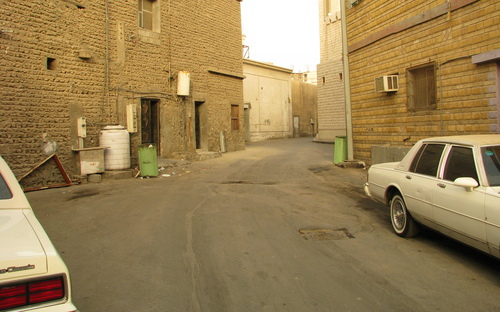**Update: Confidential sources report that Saudi authorities have begun to destroy homes in the area surrounding the al-Masora neighborhood. Saudi authorities have also cut off electricity in al-Masora in an effort to force residents to leave. The government has banned power companies and aid organizations from providing residents with any assistance.
———————————-
On 31 December 2016, Mohammed bin Abdul-Aziz Elsafian, the public relations and media director for the Secretariat of Saudi Arabia’s Eastern Province announced that the provincial government had begun the process of demolishing the historic al-Masora neighborhood in the town of Awamiyah. Americans for Democracy & Human Rights in Bahrain strongly condemns this decision, which will destroy one of the oldest areas of the town, reduce citizens’ access to adequate housing, and have the potential to significantly increase the poverty level in Awamiyah.
The town of Awamiyah dates back centuries and al-Masora is one of its oldest neighborhoods. It is more than four centuries old. The neighborhood is composed of more than 400 houses. It is characterized by narrow streets, buildings made of clay, and historic houses built from sea stone. The planned demolition of the neighborhood would destroy these centuries-old houses and cultural sites, and add to a housing predicament, potentially increasing the level of poverty in Awamiyah.
Awamiyah is in the midst of a severe housing crisis. It is currently suffering from a shortage of housing land, which has significantly increased housing prices. Land and rent prices are expected to increase if the demolition goes forward, making it harder to find housing. Despite this, the Saudi government has not compensated al-Masora’s residents for the homes that will be destroyed.
The Saudi government has embarked upon the concerted demolition of ancient landmarks, archaeological heritage, and cultural sites since before the kingdom was founded. Since 1925, the al-Saud family has overseen the destruction of tombs, mosques, and historical artifacts in Jeddah, Mecca, Medina, al-Khobar, and Awamiyah. It has destroyed sections of two cemeteries where family members and companions of the Prophet Muhammad were buried. Authorities have demolished several other sites where the Prophet worshiped and reportedly taught Islam. The destruction encompasses secular as well as religious sites. During the government’s project to expand the Grand Mosque in Mecca, Saudi authorities destroyed 10,000 properties in Mecca, including 126 mosques and whole neighborhoods. As a result of its actions, the government has destroyed more than 90 percent of the country’s landmarks.
“The Saudi government’s plan to demolish the al-Masora neighborhood demonstrates its disregard for historic and cultural sites,” states Husain Abdulla, the Executive Director of Americans for Democracy & Human Rights in Bahrain. “Saudi Arabia has obliterated countless priceless artifacts and cultural sites. Its destruction of these artifacts and sites robs the world of the right to enjoy and access cultural heritage and participate in cultural life.”
The planned destruction of the al-Masora neighborhood illustrates the government’s continued policy of disdain towards cultural and historic sites. The razing of al-Masora would erase a symbol of Awamiyah’s history and also have significant detrimental effects on its residents’ access to adequate housing throughout the town and the town’s poverty level. Americans for Democracy & Human Rights in Bahrain strongly condemns the planned demolition and calls on the Government of Saudi Arabia to indefinitely halt any plans to carry out the destruction.





